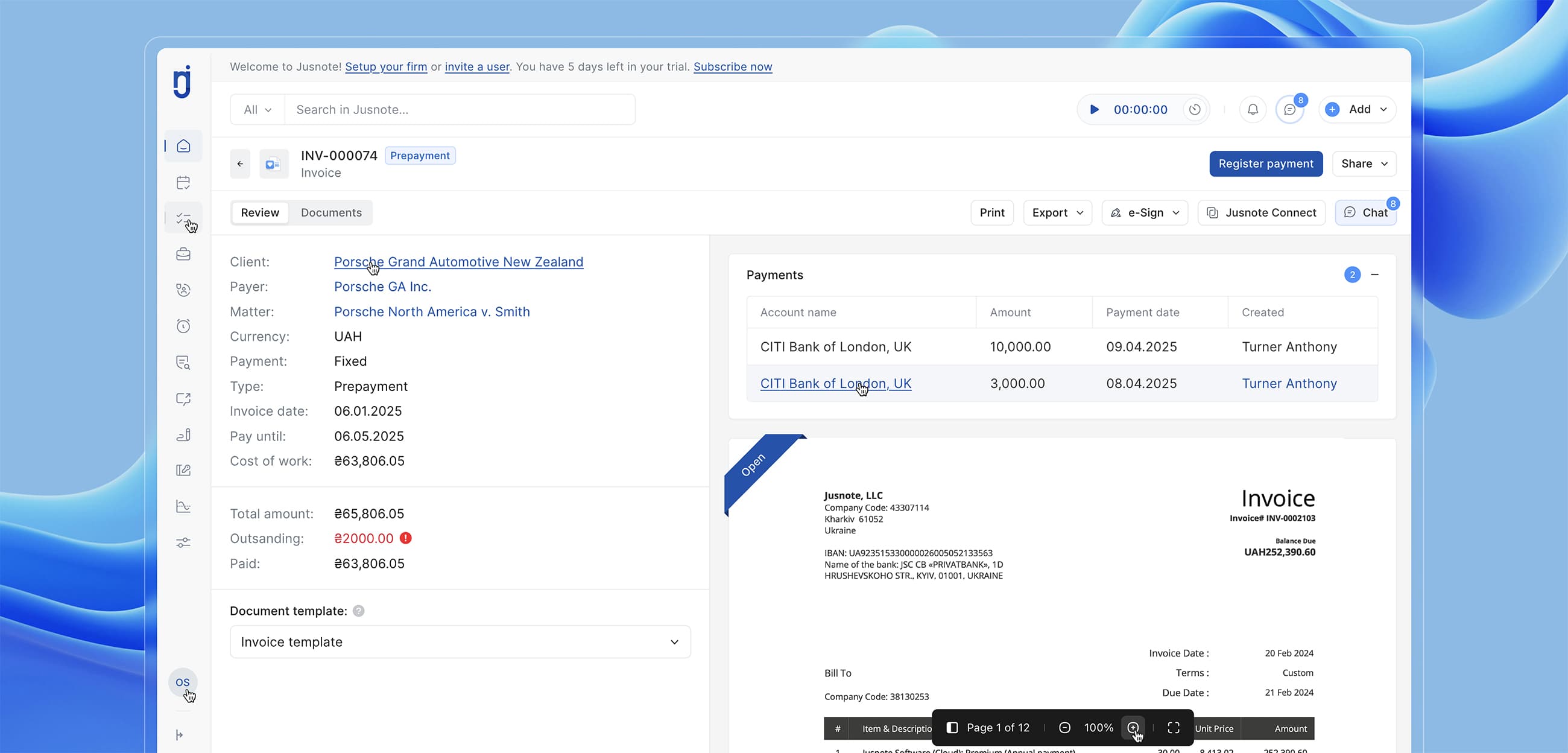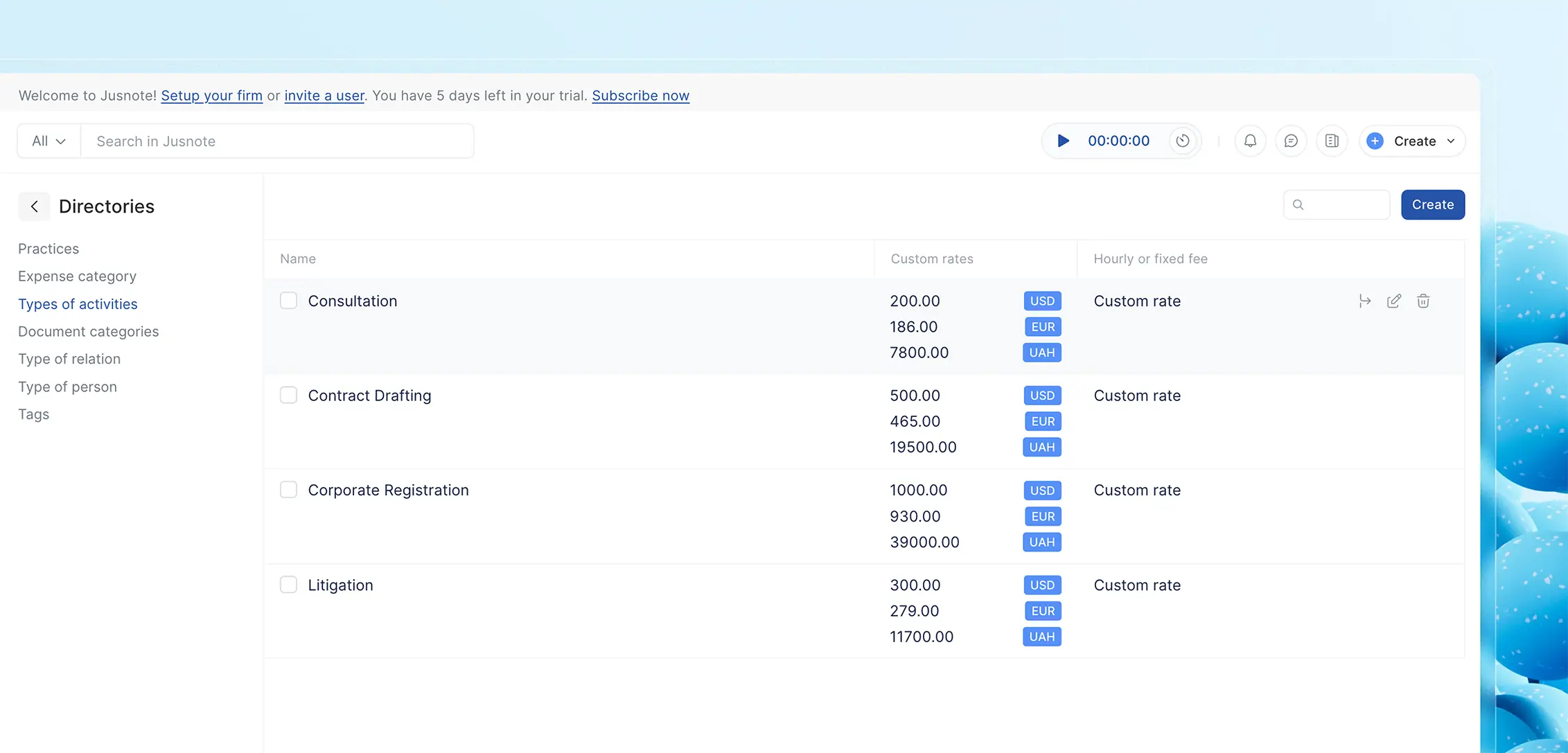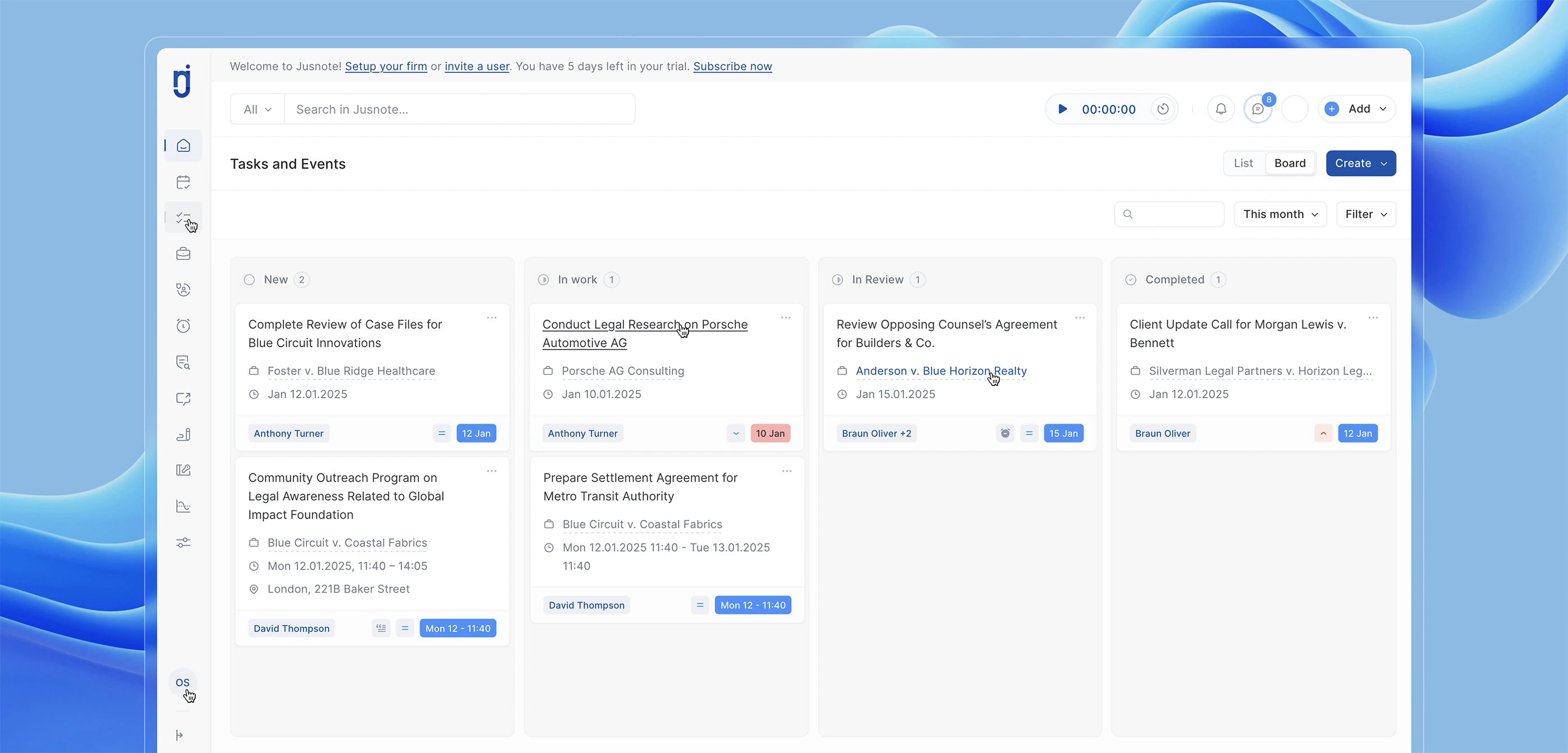Online cooperation with clients or partners is becoming an upward trend in every business. And numerous reasons have driven these rapid changes, such as the necessity to quickly respond to the Covid-19 rules and the active use of legal technology.
After all, technology has opened a scope of opportunities for all legal market players, e.g., experienced lawyers, law university graduates, young legal trainees, etc. Now they all can operate a legal practice beyond state or country borders, cut operational and administrative costs, and serve clients anywhere and at any time, no matter geographical location or time zone. We’ve compiled some benefits of virtual office shift and why it’s worth doing so.
#1 The growth of remote work
Many lawyers prefer to work remotely, even at larger legal firms. Online employment has proven itself a catalyst for better work-life balance, improved well-being, and productivity, leading to better legal practice outcomes and more satisfied clients.
In addition, legal software adoption allows lawyers to align their workflow with client needs and automate as many processes as possible. This reveals space and frees time for gaining further professional education, new competencies, relevant training, and other activities to grow as an experienced lawyer.
Many cloud-based legal solutions, such as Jusnote, offer robust functionality for a smooth transition to a remote or hybrid office. For example, billing and payment management, task, case or event management, convenient online scheduling, client management, automated document management, etc. Lawyers can consult their customers globally, wherever there’s a stable internet connection.
Legal firm owners can also save thousands of dollars annually per employee due to reduced rent and travel costs, less turnover, and fewer days off (due to sick leave, for example).
#2 Fewer upfront costs
Initially, starting a new law firm was costly and required much more money to build your own legal business than it can be done now. Law startups have to deal with all that commercial stuff like looking for their own commercial real estate, office furniture, supplies, equipment, and other related overhead financial investments.
Zoopla said that the gradual return to the office, and the general winding down of Covid restrictions, had boosted the rental market. In January, demand for rental properties was up to 76% compared to an average January in the previous four years.
And all that stuff cuts time from doing essential legal work such as serving and attracting new clients and can take lawyers weeks or months to start working on client cases. Remote offices let lawyers skip that office-like part and set up legal practice at a much lower budget and fewer human efforts.
#3 Expanded geographical reach
With traditional legal firms based in an office, lawyers are limited to the number of clients they can retain. On the other hand, virtual law firms can attract new clients from different locations when lawyers have proper licensure and are allowed to manage most legal cases in a particular country.
Legal clients can also benefit from a remote legal office since they are free to choose the lawyer they want to cooperate with. It is especially valuable for customers with disabilities, severe health conditions, etc., or those living in rural, restricted areas with a shortage of qualified legal specialists to address their issues.
#4 Improved cooperation with tech-savvy clients
Even highly regulated and most conservative industries embrace modern technology and remote communication. At the very start, these transitions were artificial, forced, and mainly imposed by the pandemic restrictions, such as the necessity of minimizing in-person engagements.
But soon after, more and more legal specialists started recognizing the capabilities brought by legal technology use. Today, lawyers witness how comprehensive legal software enables them to automate workflows, boost work productivity, create optimal work-life balance, and earn client trust.
Legal consumers are these same individuals who cannot imagine their life without smartphones, messengers, self-tracking technologies, wearables, or video conferencing in Skype or Zoom. Plus, many legal clients already work remotely or have clients or business partners with whom they meet via screen and camera on a daily basis.
A virtual office is here to stay
Online firms have become our routine, and legal specialists embrace this rising trend since it gave a fresh start to optimizing workload and retaining more clients. Still, here’s a critical aspect to bear in mind. Before practicing law remotely, lawyers and attorneys must be licensed to handle legal client cases in a particular country. So while planning the shift to a virtual firm, there’s always a risk of sensitive data breaches. That’s why lawyers must ensure that client data is protected from potential threats and unauthorized access; all customer communication touchpoints must also be secure and encrypted.
How to streamline your remote law office transition
The first step to shifting to a remote office is choosing the right legal technology vendor, like Jusnote. This cloud-based legal software helps numerous lawyers in Ukraine and Europe successfully and securely run a remote legal practice.
The robust platform features allow legal specialists to deal with large data sets in a safe, cloud-based environment, close client cases faster and effectively with client management and document automation, reduce administrative tasks, and get in-depth reporting and real-time analytics. Also, lawyers can automatically bill their clients anywhere and anytime with time tracking and invoice sharing.
Turn to our experts to see Jusnote in action and how it will help manage your remote legal practice effectively.
Start your free trial
![]()
Elena Ivanenko
Author, Content Creator at Jusnote



 Jusnote Newsroom
Jusnote Newsroom  Search Newsroom
Search Newsroom
 Back to all publications
Back to all publications

















